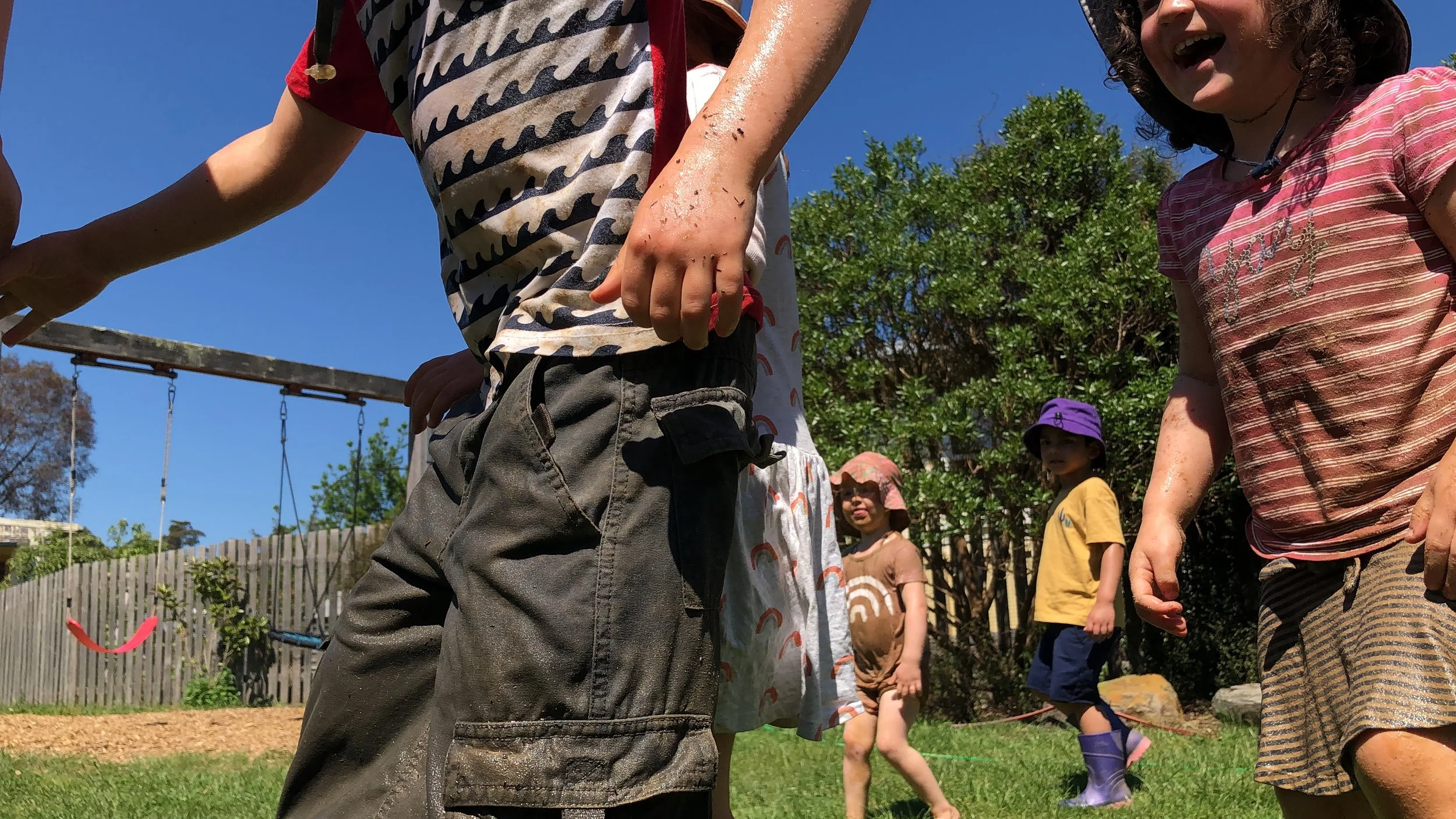
The Foundation Year
In this very important year - our work is to provide as high a standard of physical, emotional and spiritual experience as is possible in the circumstances in which we find ourselves. To this end, we try to surround the children with good speech, pure sounds, natural materials and soft colours in a gentle, nurturing environment. Special care is taken to create a play environment that is beautiful, unhurried and secure.
There is rhythm and balance in daily and weekly plans, and through the teacher’s guidance, a healthy alternation between active pursuits such as circle games and more receptive, quiet activities such as drawing, painting and listening to stories.
Children can experience both the pleasure of solitary play and the rewards of being part of the group.
We understand that during the first seven years the child learns through imitation and must therefore be given that which is worthy of imitation. This means that the adults working with the children need also to be constantly striving to carry the ideal for the children to imitate.
Our focus during this time is also to develop the children’s creativity by leaving them free to play/act from their own inner impulse. In support of this, open-ended materials are provided for the children’s play. At this age, children are discovering how to relate socially with a peer group and take part in fundamental life tasks. Through meeting and playing creatively together, children learn vital interpersonal skills.
The teacher plays an important role in enabling relationships between children to strengthen through play. We acknowledge and work with the individuality of each child to develop his full potential for the future. This is achieved through a rhythmically structured, play-based curriculum, which nurtures the true nature of the young child.
Why do we refrain from teaching reading and writing in the Foundation class?
We believe that there are many other things children need to learn before they begin to read and write, such as social and emotional skills, kinetic skills and skills to do with the world around them.
A great deal of care and time is taken to engage the students in a daily ‘Morning Circle’ which address each of these vital skills, along with counting and speech work.
With time to learn these skills first, formal learning from class one is easier. Pupils start formal learning, such as the alphabet and numbers, between the sixth and seventh birthday when we believe children are ready and can approach this challenge with ease and with great enthusiasm.
Festivals, both seasonal and those adapted from the culture that is local to the school, play an important part in the life of the school.
Festivals in the Foundation Year.
These festivals serve to awaken the child’s natural reverence, recognition of the mood that is appropriate for such occasions and a respect for the spiritual essence that exists in us all.
Festivals also provide an opportunity for participation by the whole school community and for the joy in the preparation and anticipation of the celebration itself. Festival participation in the foundation year is a special time for students and families. Parents for the first time can see how their little one has grown and can participate in a group activity wholly and with an emerging degree of individuality.
Morning Tea
Each day a delicious and highly nutritious morning tea is cooked and served to the class. The morning teatime is another opportunity for students to serve each other in a calm and sensitive manner; students are encouraged to practice good manners and polite conversation with their peers. Daily chores result from the morning tea, and students happily help with sweeping the floors, wiping down tables and washing and drying dishes.
Age Guidelines for our School Entry
For entry into the Foundation program: a child usually turns six before the 31st December in the year of entry.
Ballarat Steiner Foundation Class
Our foundation class provides a warm and nurturing environment for five to six year old children. Rudolf Steiner likened the young child under seven years, to a sponge, soaking up the sense impressions in the world around them, thus we surround the children with an environment that inspires beauty, goodness and truth.
Soft colours and natural hues provide a backdrop, in which the children play with and explore materials and toys that are carefully made from natural materials and are open-ended to inspire imagination. The mood in the room is of purposeful work with a natural care and reverence for all that we do.
In the foundation year children learn through imitation of the adults who are busy working around them and through ‘doing’.
Children are experiencing hands on Mathematics, Science and English skills.
Our daily activities involve bread making, cutting fruit, making soup, baking, sewing, finger knitting, painting, drawing, modelling, gardening, nature walks, setting the table and serving food.
Through these real-life tasks the children are experiencing hands on mathematics, science and English skills.The foundation year day has a strong rhythm which incorporates a balance of teacher-led activities such as story time, puppet plays, counting rhymes and morning circle, which involves re-enacting fairy tales or seasonal themes through song, movement, gesture and verse and child-led periods of self-directed play both indoors and outdoors.
Digging, building, caring for animals, water-play and climbing help to develop balance, healthy vitality, fluidity and strength of movement, sensory and social skills which enable them to embody strength and a strong connection with the environment, necessary for commencing more formal learning in class one.




